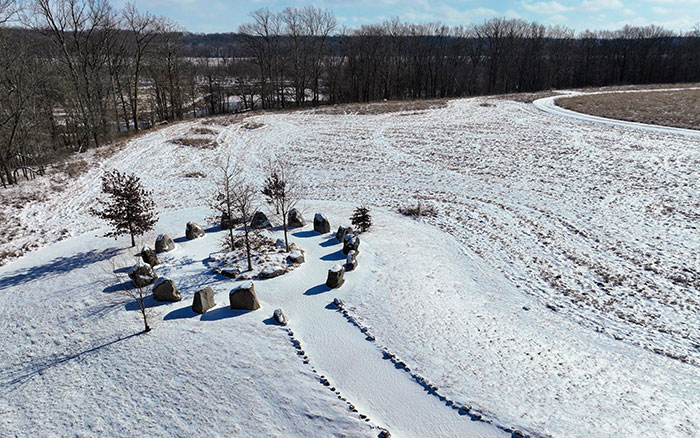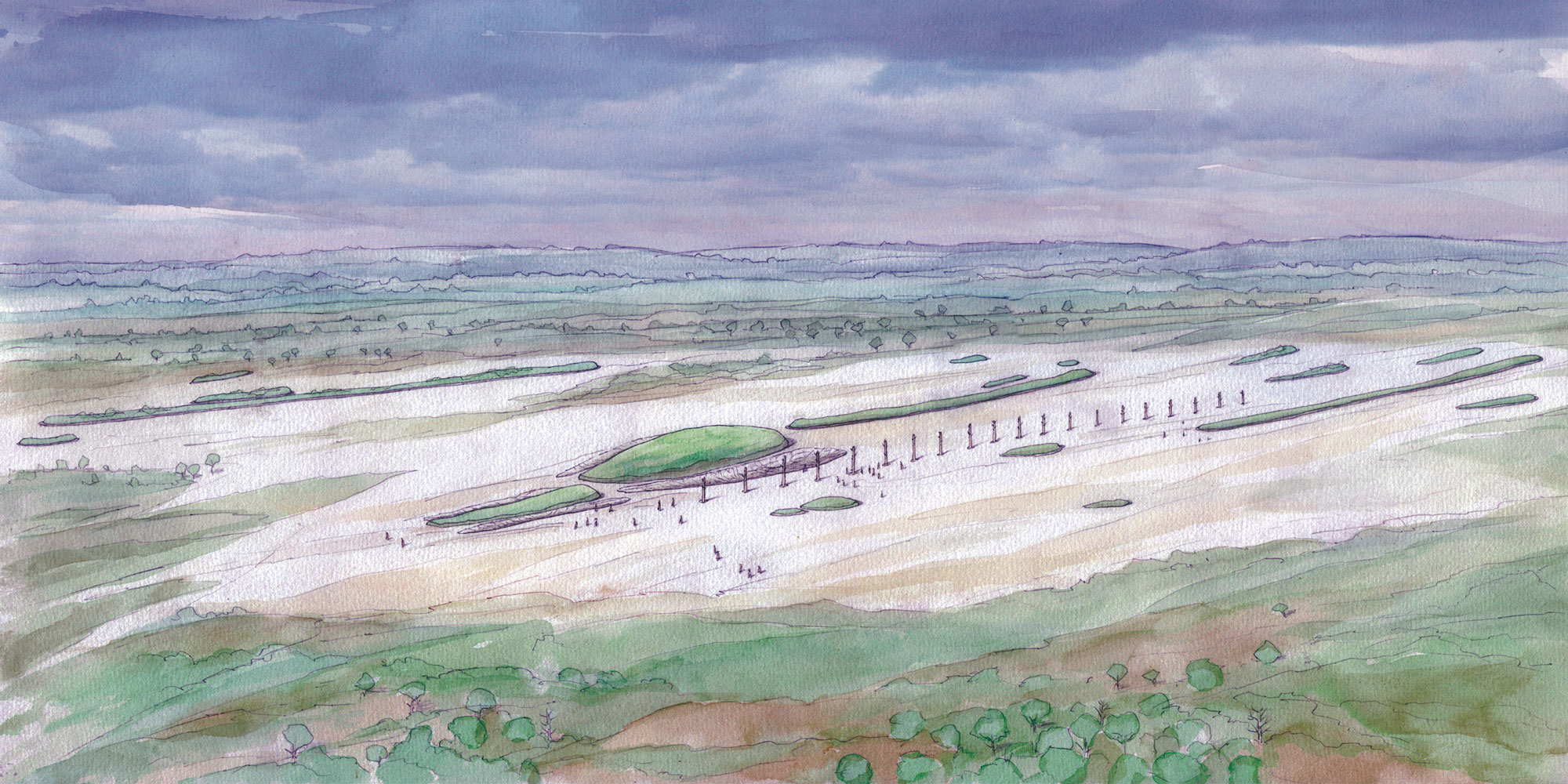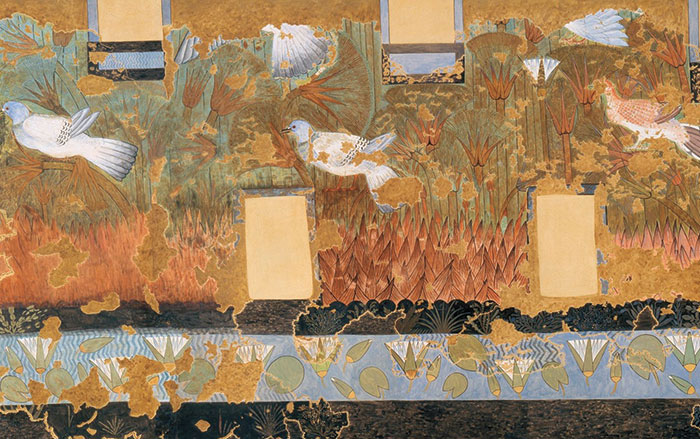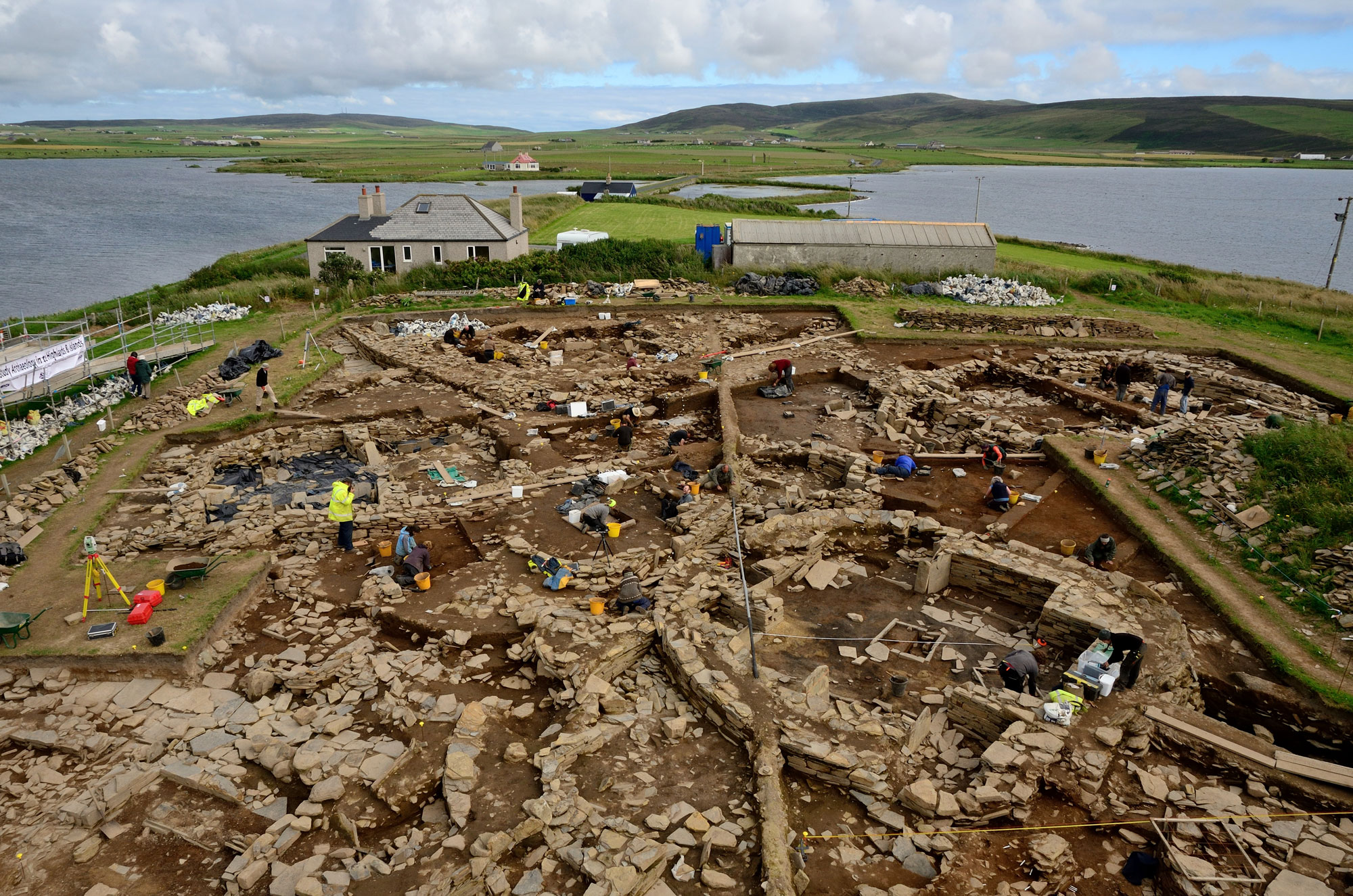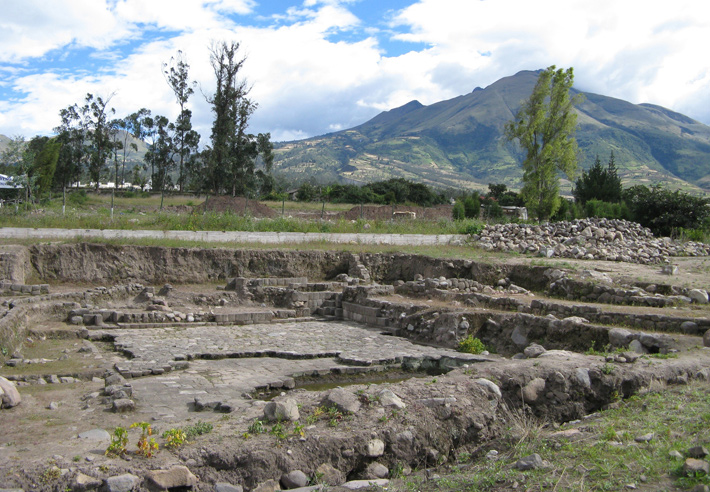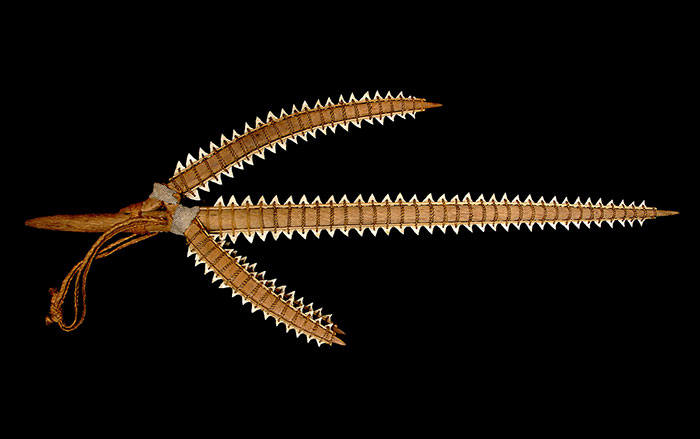
AHIHUD JUNCTION, ISRAEL—Construction of a new railway line in northern Israel has uncovered two settlements, the first from the Pre-Pottery Neolithic period. These buildings were carved from the bedrock, and some of them had plaster floors. “We found a large number of flint and obsidian arrowheads, polished miniature stone axes, blades and other flint and stone tools. The large amount of tools made of obsidian, a material that is not indigenous to Israel, is indicative of the trade relations that already existed with Turkey, Georgia, and other regions during this period,” said Yizhak Paz and Ya’akov Vardi of the Israel Antiquities Authority. They also found thousands of charred broad bean seeds in a pit, indicating that these early farmers were growing legumes. Later buildings, from the Early Chalcolithic period, were constructed with thick walls of stone and clay and were sometimes covered with plaster. Archaeologists also found pig bones, pottery and flint tools, in addition to a stone phallus figurine and a palette on which an image of female genitals had been etched. The scientists say these symbolic items represented the fertility of the earth.


